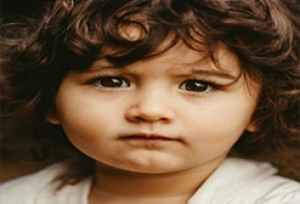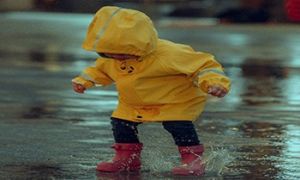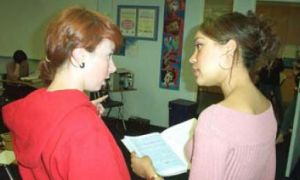

Outcome 2 of the EYLF—Children are connected with and contribute to their world—reminds us that belonging is not just about being present but about feeling valued, included, and empowered to make a difference. The following article translates the outcome into simplified language to support educators in recognising and documenting moments of empathy, cooperation, and community-building.
Here’s a set of open-ended observation starters for mealtimes and nutrition, designed to support authentic child voice, trauma-informed practice, and emotionally intelligent documentation. These can be used across age groups and settings—from infants exploring textures to preschoolers engaging in cultural conversations around food.
In early childhood settings, meaningful moments often unfold quietly: a glance of recognition, a rhythmic sway to music, or a spontaneous giggle during water play. These moments may seem fleeting, but they carry profound developmental, emotional, and relational significance. As educators, your professional judgement is the compass that helps decide which experiences to document, reflect on, and share.
This guide is designed to support emotionally intelligent, culturally inclusive, and developmentally attuned documentation. It honours your insight, workload, and the relational depth you bring to your practice. Whether you're crafting a photo story, jotting a sensory note, or simply holding a moment in memory, this framework helps you decide what’s worth recording and why.
Documentation is more than a compliance task; it’s a powerful tool for reflection, connection, and responsive programming. Yet with the increasing demands on educators’ time, it’s vital to reaffirm a core principle: educators are trusted professionals, capable of discerning which experiences are worth documenting and reflecting on.
A child’s sense of identity is the foundation for all learning, relationships, and wellbeing. Outcome 1 of the EYLF Children have a strong sense of identity reminds us that when children feel safe, seen, and valued, they begin to explore who they are and how they belong. The following article translates the outcome into simplified language to support educators in recognising identity-building moments, responding with emotional intelligence, and documenting children’s growth in ways that are meaningful for families and respectful of each child’s unique story.
Observation starter prompts invite educators to notice deeply, listen generously, and document with emotional intelligence. This article offers themed prompts across routines and play contexts, enabling educators to write about children's experiences without assumptions or judgment.
Creating open-ended observations in early childhood settings is all about capturing the richness of a child’s experience without judgment, assumptions, or leading interpretations. These observations invite reflection, celebrate authentic voice, and support responsive planning. The following article is a guide to help you craft them effectively.
In a sector where time, presence, and emotional safety are paramount, documentation should serve learning—not overwhelm it. This guide clarifies what educators are legally required to document under the Education and Care Services National Regulations, and what can be safely streamlined or reimagined.
In the rhythm of early childhood education, the most meaningful moments often happen in the quiet spaces between routines—when educators kneel to listen, when a child’s story unfolds through play, when connection is felt rather than recorded. Yet across many services, the pressure to document every detail of a child’s day has grown into an unsustainable burden, pulling educators away from presence and into paperwork.
This article clarifies what educators are actually required to document under the Education and Care Services National Regulations—and what can be safely let go.
Organising and documenting critical reflections in early childhood services isn’t just about meeting NQS Element 1.3.2—it’s about embedding a culture of inquiry, emotional safety, and continuous improvement. Here’s a curated set of practical, emotionally intelligent, and sector-aligned ideas to help you scaffold reflection meaningfully across your team.
 As an Educator in Australia, your pay rate falls under the Children’s Services Award 2010. This award states the minimum amount that an employer can… Read More
As an Educator in Australia, your pay rate falls under the Children’s Services Award 2010. This award states the minimum amount that an employer can… Read More
 When working as a qualified Early Childhood Teacher (with a university degree) within a service, your rate of pay will come from the Educational Services… Read More
When working as a qualified Early Childhood Teacher (with a university degree) within a service, your rate of pay will come from the Educational Services… Read More
 When working as a Diploma Qualified Educator your pay rate is from the Children's Services Award 2010. This Award states your minimum rate of pay… Read More
When working as a Diploma Qualified Educator your pay rate is from the Children's Services Award 2010. This Award states your minimum rate of pay… Read More
 When working as a Cert 3 Qualified Educator, your pay rate is from the Children's Services Award 2010. This Award states your minimum rate of… Read More
When working as a Cert 3 Qualified Educator, your pay rate is from the Children's Services Award 2010. This Award states your minimum rate of… Read More
 Educational Leaders play a crucial role in their early childhood service by ensuring that the educational program aligns with best practices and supports the holistic… Read More
Educational Leaders play a crucial role in their early childhood service by ensuring that the educational program aligns with best practices and supports the holistic… Read More
 In early childhood education and care, ratios are more than a technicality—they are a frontline safeguard. Every child deserves responsive supervision, emotional connection, and developmental… Read More
In early childhood education and care, ratios are more than a technicality—they are a frontline safeguard. Every child deserves responsive supervision, emotional connection, and developmental… Read More
 With the new national child safety reforms kicking in on 1 September 2025, early childhood services like yours have a real opportunity to lead the… Read More
With the new national child safety reforms kicking in on 1 September 2025, early childhood services like yours have a real opportunity to lead the… Read More
 Here’s a comprehensive Mobile Phone and Smart Watch Policy tailored for early childhood education and care (ECEC) services in Australia, aligned with the latest 2025… Read More
Here’s a comprehensive Mobile Phone and Smart Watch Policy tailored for early childhood education and care (ECEC) services in Australia, aligned with the latest 2025… Read More
 The Sea of Fish Challenge is a national initiative that invites children, educators, families, and communities to create and display fish artworks as a symbol… Read More
The Sea of Fish Challenge is a national initiative that invites children, educators, families, and communities to create and display fish artworks as a symbol… Read More
 Emotional awareness and self-regulation are crucial skills for young children, helping them navigate social interactions, manage their feelings, and develop resilience. The following article provides… Read More
Emotional awareness and self-regulation are crucial skills for young children, helping them navigate social interactions, manage their feelings, and develop resilience. The following article provides… Read More

Weather-themed activities are a fantastic way to help toddlers and preschoolers explore nature, science, and...
See more...
How you support work placement students can depend on your own position within the centre...
See more...
Introducing children to science at a young age assists in their brain development. Science experiments...
See more...© 2009-2025 Aussie Childcare Network Pty Ltd. All Rights Reserved.

